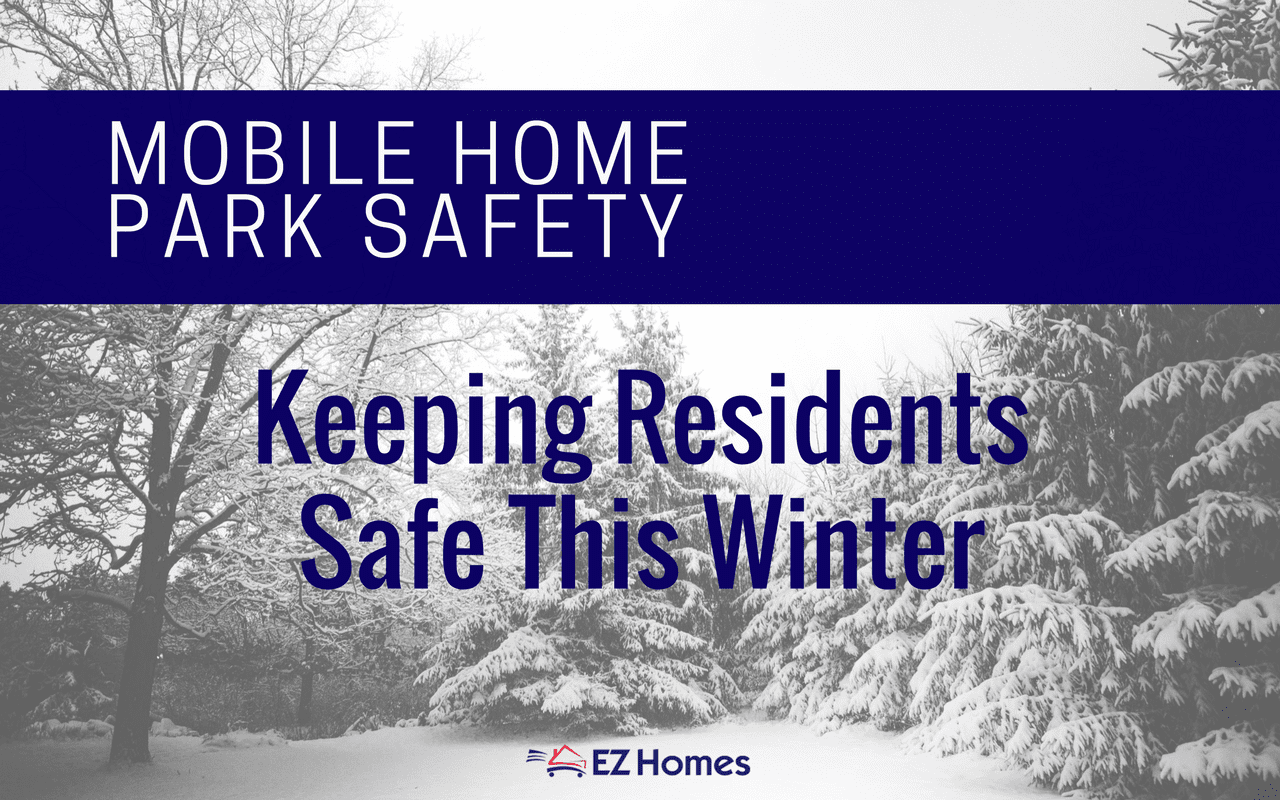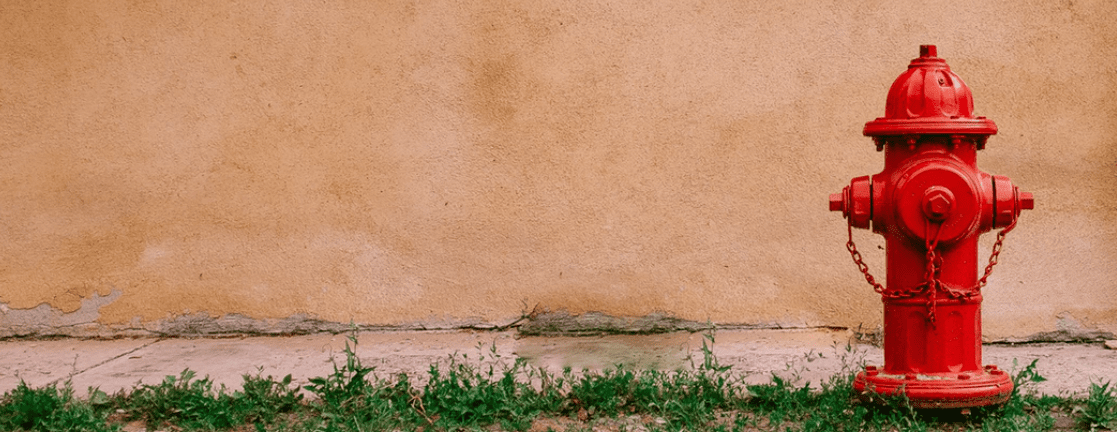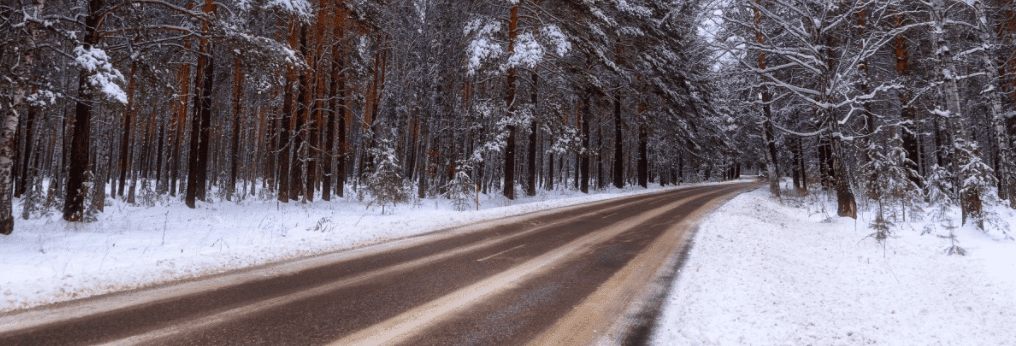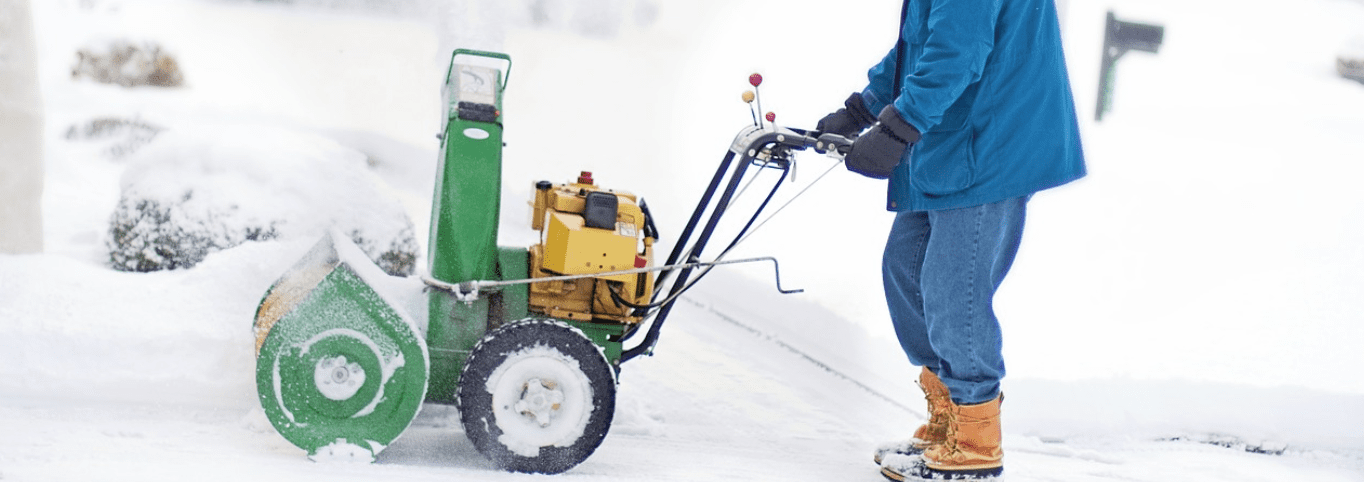Despite mobile homes’ reputation as risky in areas such as fire safety and structural integrity in extreme conditions, mobile home park safety during winter isn’t talked about half as much as it should be. This is a real area of concern not only because of the direct threats of extremely cold weather but mainly because of secondary threats such as people using more electrical and heating appliances and slippery conditions on the road.

While some of this might not seem like your problem, as the park owner, you will always have some level of responsibility. In cases where certain actions and measures can’t be regulated or enforced, the least you can do is inform your tenants of the danger and provide them with the information to protect themselves.
What seems like one tenant’s problem can soon pose a risk to everyone in the park, particularly in the case of a fire. We hope that you take the time to read this guide and keep your mobile home park tenants safe this winter.
Home heating safety
Winter is the time of year most people whip out their space heaters, switch on their electric blankets, light their fireplaces, and take out all their most cozy blankets to keep warm. And who can blame them? We all need to get cozy in our homes and try to stick out the winter chill. Not to mention lighting the candles at Christmas time to get into the festive spirit.
Unfortunately, most of these measures are also extreme fire hazards if not used properly and safely. In a setting such as a residential mobile home park, one person’s irresponsible behavior can be a danger to all. Fires can spread quickly and put everyone in danger.
It’s important that you protect yourself and your tenants by adhering to safety protocols informing them of proper safety protocols for heating their home in winter.
Park-wide fire safety
Spacing
You should check your local legislation for minimum spacing requirements. These requirements are meant to make it much harder for fires to spread from one home to another once started. Mobile homes are typically not as fire-retardant materials as stick-built homes (especially older ones) which means fires can spread much faster from home to home.
Firefighting equipment and training
Every park should have its own firefighting equipment and should have at least one staff member adequately trained in firefighting. Programs are available for your staff, and they usually require refresher training now and then. Check local legislation which should specify the intervals of fire hydrants in the park.

Most fire warning and safety equipment require some level of maintenance. Fire extinguishers need to be serviced every six years, and smoke and fire alarm detectors should be maintained and their working order established.
Also, make sure that you adhere to other regulations. State emergency vehicles should never be hampered from entering the park and should be able to reach all locations within the park. Lastly, all staff should know the emergency numbers for the local fire department and follow clear fire emergency guidelines. Your park’s guidelines may include evacuation procedures with gathering points, etc.
Notices
In the park, you should have clear notices for emergency gathering points or routes. Where appropriate, you should also provide other relevant warnings that can be seen and understood by all the tenants.
Fire risk assessment
You should carry out fire risk assessments on a yearly basis and preferably before the peak home fire period of December-February. The main point of these fire risk assessments is to identify potential problems and address them ahead of time. Whether this falls within your responsibility or the tenant’s depends on your agreement and what exactly the problem is.
Hazards
Except for your scheduled fire risk assessments, you should always be keeping an eye out for potential hazards. New hazards can arise from negligent contractors or tenants. You should regularly take note of these risks to fix them later or to use as proof in cases where you must take action against the guilty party.
LPG gas cylinders
There are strict guidelines for how residents should store Liquefied Petroleum gas canisters. The NFPA 58 – Liquefied Petroleum Gas Code stipulates the requirements for transporting and storing these gas cylinders safely.
Individual home fire safety
These rules or guidelines aren’t as easy to enforce. Although many of them should form part of your fire risk assessment, the problem is that you can’t check on every individual tenant every day for the whole of winter. Check this out for a handy and informative infographic on winter home fires.
When the cold sets in, people will naturally try to protect themselves and their families from it, often a risk to their safety. It’s also easy for many usually responsible tenants to forget themselves at Christmas time as they are distracted by the season’s festivities.
The HUD Code implements NFPA 501 fire safety codes when it comes to manufactured homes. Ensuring that all your tenants’ homes are HUD compliant and that they’re only allowed to bring in HUD compliant homes go far to promote mobile home park safety.
- According to the NFPA 501, each home should have at least some fire alarms installed in the kitchen, sleeping rooms, and at the top of the stairs or basement (if any). They have to be in working order and 10-year battery life with backup batteries.
- All mobile homes have to have at least two exit doors. These doors should also be easy to reach without impediment from the sleeping rooms in the home.
- All kitchens should have mechanical ventilation or exhaust systems.
Fires caused by heating appliances account for the second-most causes of house fires. Space heaters are the culprit in ⅖ cases.
General safety tips tenants should follow to prevent fires:
- Switch off all heating appliances, especially space heaters, when leaving home or going to sleep.
- Don’t leave any candles unattended.
- Use only insulating material that is fire retardant.
- Keep blankets, curtains, furniture, and all other flammable materials away from space or gas heaters.
- As people tend to use more electronic appliances at the same time during this period, they should not overload sockets and use only appropriately rated appliances.
- Christmas trees should be disposed of as soon as possible, and the lights for them should be switched off at night. This is because Christmas trees become increasingly flammable as they dry. This could lead to intense and fast-spreading fires that can quickly engulf the home.
- Besides causing fires, gas cooktops and heaters pose a high risk of carbon monoxide poisoning. Residents who use these appliances should always check for leaky canisters and ensure they properly close them. Leaking gas can disable, kill, or cause explosions when ignited.
- To prevent electrical fires, ensure that all contractors are professionals who adhere to HUD safety standards.
- Residents should also be encouraged to smoke outside. If you own the home, you can prohibit tenants from smoking inside entirely.
- Wood storage is another issue. Kindling can quickly lead to fires if stored near any flammable sources. All staff and residents should keep kindling and firewood outside and a safe distance away from structures.
- If any of the mobile homes have chimneys, they should be cleaned regularly and not be blocked in any way.
- Make sure that homes have proper insulation to cut down on the necessity of running heating appliances.
Road safety

As a mobile home park owner, the road safety within your park rests squarely on your shoulders. In fact, this issue is directly addressed in states’ mobile home park legislation. Each state is slightly different so you should check your individual state for requirements.
However, rules are stipulated in most areas, which you should follow carefully for the safety of your tenants. As you should be well aware, winter is an especially dangerous time on the roads. You can read some fairly frightening stats on winter road accidents here.
So, what can you do to improve road safety inside your mobile home park during winter?
Road hazard signs
If there are any areas in the park where snow gathers quickly, where the roads are prone to icing, or where there are sharp turns that can become dangerous with snow, you should clearly indicate this via road signs. It might even be useful, if you are in a snowy area, to have signs throughout urging caution.
Your park needs to have speed limits specifically for winter roads. It’s generally accepted that you should reduce your speed by at least half in snowy conditions. In most areas with snow, the authorities post speed limits of 30 mph.
Chemically de-ice roads
Many chemical methods will hamper the onset of snowy or icy roads. Applying these will also make the roadways easier to plow once they have snowed over and slightly safer to drive on while there is snow or ice present. Be sure to de-ice driveways and pavements throughout the park. It might sound funny, but many people get seriously injured by slipping on these surfaces!
One widey-practiced method is to spread salt on the roads. This seemingly simple solution is very effective. A recent study found that the application of salt to snowy or icy roads reduced accidents by up to 88%! This resulted in 85% fewer injuries and reduced the costs associated with accidents.
The salt is often mixed with sand and gravel to improve traction and make it safer to drive on. You can get services that drive through your park with dump-trucks and treat all the roads at once. However, you can do this yourself if you have the means and the time.
Liquid brine, liquid magnesium chloride, and rock salt and calcium chloride are all options. However, they all vary in their efficacy at very low temperatures, cost, and environmental impact.
Personal snow removal equipment

Additionally, you can rent equipment for your own use to clear away snow. Snowblowers cost anywhere between $80-$200 and can be used to clear walking paths, pavements, driveways, etc. They are also very easy to operate. The only problem is that you can’t really use these to clean snow once it has fallen too deep or off wide roads. Their strength is to clean small areas quickly with minimal cost and manpower.
Snow plows
To clear entire roads once 2+ inches of snow has fallen might require snow plows or trucks. Depending on your location and your local municipality, they may disperse snow plows. Otherwise, you will have to take care of it yourself.
After a massive snowfall, residential areas are only the third priority on the list right behind primary and secondary roads and highways. If your mobile home park is a bit out of the way, it might take awhile for these municipal services to reach you.
Outside conditions and extreme weather safety
During this time of extreme cold, the weather conditions can still change pretty rapidly, leading to all kinds of hazards and dangers. Another part of mobile home park safety is always to stay alert to extreme weather conditions predicted for the area. You’ll want to have a plan beforehand on how to deal with them. For the safety of your tenants, this information should be distributed and made available. Also, encourage residents to have a cautious and proactive attitude from the beginning.
Here are some safety precautions that you should implement and encourage:
- In case of very heavy snowfall, avalanches that block access roads, or other drastic events, residents should stock up on emergency supplies to last them a few days. (This warning may vary depending on the severity of winter in your area.)
- In areas where it snows in dangerous amounts during winter, it might be worthwhile to invest in storm warning and extreme weather radios such as NOAA radios.
- Identify, clearly sign, and try to prevent people from using paved areas that usually get icy and slippery in snowy weather.
- Have first aid kits ready in the event of a tenant becoming injured
- Have a set of emergency tools and supplies yourself such as high-power flashlights, axes, saws, ropes, etc.
- Encourage tenants to dress appropriately for the weather and outside temperature.
- You should not work too hard when there are adverse weather conditions. Particularly in cold conditions, it’s easy to get over-exerted, which could lead to loss of consciousness and death. Encourage tenants to start clearing snow and so on only after weather conditions are stable.
Winter safety is an often overlooked part of mobile home living for both tenants and park owners. However, as you can see from the statistics and the depth of measures you should take to protect yourself, it is a very real danger that claims victims every single year.
Take mobile home park safety seriously this winter!
As responsible and good-natured mobile home park owners, we’re confident you want to do your best to keep your tenants (and yourself) safe this winter. Don’t let any avoidable and unfortunate situations ruin the events you have planned for your residents! Proper preparation is the key to mobile home park safety.
Merry Christmas, Happy New Year, and most importantly stay safe!


